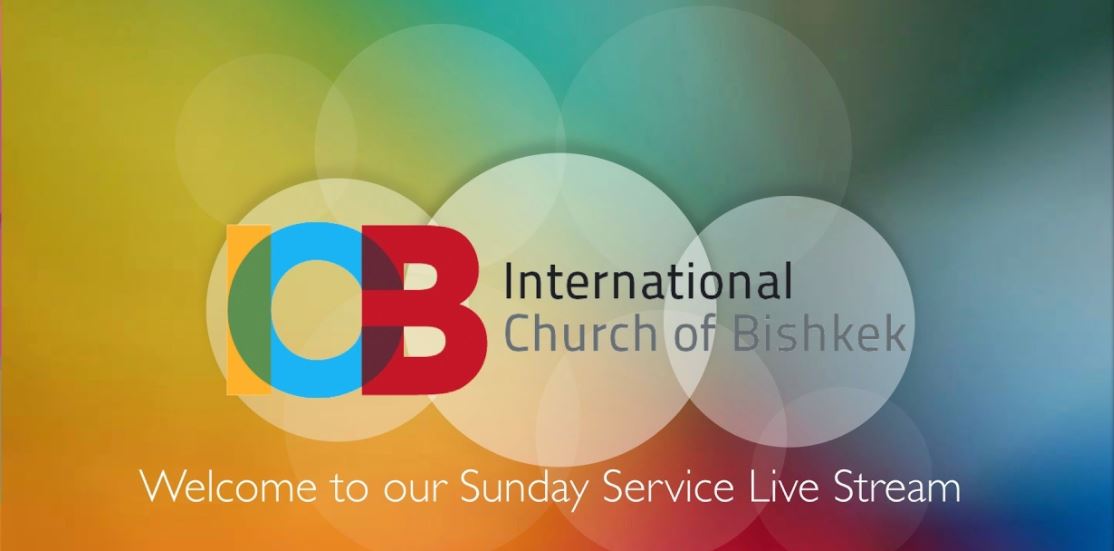|
Photo by Andrew Petrischev on Unsplash [Sarai] said to Abram, 'The Lord has kept me from having children. Go, sleep with my slave; perhaps I can build a family through her.' Abram agreed to what Sarai said. Genesis 16:2 NIV Dear ICB,
When talking about marriage, it is very popular in Christian circles to say something like, "Yes, the husband is the head, but the wife is the neck." More often than not I've heard that statement followed by something like, "She can turn her husband in whatever direction she chooses." And it's at that point, almost without fail, that everyone chuckles. I will be blunt: I'm not a fan of such a comparison. That's because—at least in all the times I've ever heard that comparison made—I've never sensed that it truly honored either husband or wife. Of course, it does no honor to a husband if, by referring to his wife as his neck, we are to understand that he is essentially at the mercy of moving in absolutely whichever direction his wife so determines. Furthermore, it does no honor to a wife if, by the same comparison, we are to understand that she is essentially domineering, controlling, and manipulative. While I don't like what most Christians seem to imply when they refer to a woman as the neck of her husband, the head, I'd like to take a shot at redeeming the comparison. Here's what I propose: Wives, you are your husband's necks. Your influence is staggering. Your strength to hold him up is essential. Your support of him is not optional. Through you flow the blood vessels that supply his very life. He rises or falls on account of your godliness. His reputation, good or bad, is inextricably linked to you. He is the direct beneficiary of your hard labor. His ability to trust in you is his joy. Your wisdom or lack thereof will either rescue him from his folly (like in the case of Abigail and David) or will plunge him headlong into a disastrous mess (like in the case of Abraham and Sarah). In other words, "An excellent wife who can find? She is far more precious than jewels" (Proverbs 31:10 ESV). The value that an excellent neck has to its head is incalculable. In fact, the head would be incapable of doing what God created it to do without its neck. In that sense, then, I very boldly assert that a husband is the head and his wife is the neck. When the two are functioning in harmony as they were meant to, the result is beautiful. When either (or both in the case of Abraham and Sarah) gets it wrong, we only have to look at the tragic story of Hagar to see the results. Flabbergasted by my beautiful neck, Eric
1 Comment
Click on the image above to watch the service on our YouTube channel. Genesis 16Seven principles we can learn from the story of Abraham, Sarah, and Hagar
Questions for personal reflection and/or group discussion
[Abraham] grew strong in his faith as he gave glory to God, fully convinced that God was able to do what he had promised. Romans 4:20b-21 ESV Dear ICB family, Romans 4:21 gets at the heart of what faith truly is. Faith is being convinced that God can and will do what he has promised. To say it negatively, it's not some vague hope or confidence that what you really want to happen will happen. Biblical faith always has a foundation underneath it, and that foundation is a promise from God. If a person's hope doesn't have such a foundation, that hope is merely wishful thinking. For example, it doesn't matter how hopeful or confident a person is that he will win the lottery. Clearly that's not faith because that person has no promise from God underlying his hope. For this reason it is so important that we know the promises of God. What has he actually promised us? What has he not promised us? What has God made explicitly clear to us? And related to those questions, When has God promised us to give us the things he's promised us? Biblical faith always has a foundation underneath it, and that foundation is a promise from God. I've heard it said that the problem with the health, wealth, and prosperity gospel essentially boils down to an issue of time. Take health for example. Revelation 21:4 makes this staggering promise: "[God] will wipe away every tear from their eyes, and death shall be no more, neither shall there be mourning nor crying nor pain anymore, for the former things have passed away." No more pain for all eternity. All sickness healed. All diseases eradicated. It is a promise you can bet your life on. Now, when will that happen? Verse 1 makes that clear: when God makes a new heaven and earth and a new Jerusalem. In other words, we get complete health in the end but not necessarily in this life. What about wealth and prosperity? If we are to believe some of the staggering promises made to Christ's bride, then we are fellow heirs with Christ (Romans 8:17). What, then, has Christ inherited from his Father? Answer: Everything. He gets it all. Nothing is excluded (Ephesians 1:20–23). And if we are fellow heirs, that means Christ turns around and shares the universe and everything in it with his bride. All wealth and all prosperous living are included as part of our inheritance, an inheritance that Christ has earned and that he will one day share with us. Yet when will we get to take possession of this inheritance? Peter tells us: "[God] has caused us to be born again to a living hope through the resurrection of Jesus Christ from the dead, to an inheritance that is imperishable, undefiled, and unfading, kept in heaven for you." In other words, we get all wealth and all prosperity imaginable and beyond, but not here on this earth. Such an inheritance awaits us in the life to come. With all your might, then, know the promises of God. What has he promised you, and what hasn't he promised you? Set your mind and heart on those promises. Hope in them. And when the devil whispers in your ear—and whisper he will—that you're silly for believing such things or that God is not able to do what he has promised, just remember that even if it takes 25 years in the case of Abraham or 70 years in the case of the exiles in Babylon or 400 years in the case of the children of Israel or 700 years in the case of the coming of Isaiah's suffering servant, God keeps his promises. Always. And it is believing those promises that is true, living, biblical faith. Standing on the promises with you, Eric Click on the image above to watch the service on our YouTube channel. Genesis 15; Romans 4Paul gives a three-point sermon in Romans 4
Questions for personal reflection and/or group discussion
And [Abraham] believed the LORD, and he counted it to him as righteousness. Genesis 15:6 ESV Genesis 15:6 is perhaps one of the most important verses in the Old Testament. "And [Abraham] believed the LORD, and he counted it to him as righteousness." In other words, Abraham believed God, and God credited that faith to Abraham as righteousness.
A word on terms. Our modern English concept of the word righteousness is a bit limited. We would probably say that righteousness amounts to law keeping. That's not wrong. It's just not the fuller picture. In the Bible, the word righteousness is connected to two other concepts: covenant and relationship. A righteous person is a person who keeps the terms of a covenant (a pact or agreement or today we might say contract) made between two parties and as such enjoys all the benefits of a good relationship with the other party. Righteousness, then, is covenant keeping with the enjoyment of the positive relationships between parties that comes as a result. What about that word "believed" in Genesis 15:6? In the context of Genesis 12–15, God had given Abraham a series of promises. They were clear and specific. Abraham would become a great nation, kings and queens would come from him, his name would be made great, he would be blessed and become a blessing to all the families of the earth, God would bless those who bless Abraham and curse those who curse him, God would give him and his descendants a land as an everlasting possession, and God would be Abraham's God and the God of his descendants and they would be his people. In a dramatic way, God affirmed the oath by walking through the middle of animals that had been cut in half, stating, in essence, "May I be like these animals if I don't fulfill my word." Abraham heard all that God had promised, and deep within him there welled up a resounding, "You, O God, are faithful and will fulfill your promises, even though I can't understand how, even if I don't see their fulfillment within my own lifetime!" That is belief. God makes a promise to someone, that person hears the promise, and he or she is so convinced that God is faithful to do what he's said that the person's life is forever changed as a result. Apparently, the full import of Genesis 15:6 had failed to register with the Jewish people in the days of Jesus, even among those who accepted Jesus as the Messiah. It is for that reason that Paul wrote the book of Galatians. Even after Jesus's resurrection, some of his followers believed that in order to come to God, first a person had to become a Jew and submit him- or herself to the laws recorded in the Torah. They believed that in order to be considered righteous before God—that is, in order to be counted among those who had kept God's covenant and thus enjoyed a right relationship with him—a person had to adopt the Jewish law and customs. Paul emphatically argues that God sees a person's faith—not a person's Torah-keeping or his cultural practices—and counts that person's faith as righteousness. You can see how interwoven racism and this whole business of justification by faith really are. Spiritual racism is the belief that I'm more worthy in God's sight because I fit more exactly into this particular cultural mold. That was the mindset of some Jews in the first century. We would do well not to fall into a 21-century version of the same trap. That is, we would do well not to think that in order for any man, woman, or child on the planet to be counted as righteous before God, first he or she must adopt our cultural norms, act like us, think like us, dress like us, talk like us, or fit into any other of our biased notions of correct and proper behavior. God will count a person righteous solely on the basis of whether or not that person has heard the promises that God has made in Christ and is convinced from the heart that God is faithful and will fulfill those promises, even without understanding how or when and even without seeing their fulfillment in his or her lifetime. People are not included or excluded from the kingdom of God based upon any other factor. Genuine faith constitutes the single criterion. When we invent other criteria and judge people's stance before God based upon those criteria, we are doing what the Jews in Galatians did, and we are guilty of spiritual racism and of believing another gospel, a gospel completely foreign to Paul and the other apostles. The New Testament gospel requires that both Jews and Gentiles take a step beyond their cultural backgrounds and put their faith in a common Christ, the Christ who is a "stumbling block to Jews and folly to Gentiles" (1 Corinthians 1:23). Absolutely no room for anything that even remotely smells like an attitude of "You must become like me and my culture to come to God." Coming will be by faith alone or it won't be at all. Putting to death the deep-seated root of spiritual racism, Eric Click on the image above to watch the service on our YouTube channel. Genesis 11:27-12:9; Galatians 3:6-9God's desire is to bless all nations. Ethnic pride and racism is deep in all of us. We try to limit the blessings of the gospel to people like us. Those sins might be easy to identify, but the truth of the matter is that big sins grow out of small attitudes of the heart.
Questions for personal reflection and/or group discussion
I shall dwell in the house of the LORD forever. Psalm 23:6 ESV Dear ICB family,
You've probably heard it said that some people are too heavenly minded to be of any earthly good. Is that actually possible? Well, that depends. What does being "heavenly minded" mean? Let's assume that "to be of any earthly good" means to live in such a way so as to be a benefit to others. If, then, to be "heavenly minded" means to live in a dream world that's comprised of ideas devoid of acts of loving kindness toward one's neighbor, then, yes, I would say it would be possible for a person to be so wrapped up in fanciful ideals that he or she ceases to benefit anyone else at all. A person who has developed a just-me-my-Bible-and-Jesus mentality about this life would fall into that category. However, I personally wouldn’t describe such a person as "heavenly minded" at all. I'd call such a person disconnected, disinterested, and delusional. I would define "heavenly minded" like this: "One thing have I asked of the LORD, that will I seek after: that I may dwell in the house of the LORD all the days of my life, to gaze upon the beauty of the LORD and to inquire in his temple" (Psalm 27:4, also a Psalm of David, quite reminiscent of the last line of Psalm 23: "and I shall dwell in the house of the LORD forever"). Really, David? You get to ask for anything and all you'd ask for is a spot around the throne of God just so that you can see him? That's what I'd call "heavenly minded." It's precisely this kind of heavenly mindedness—the eyes of the heart fixed on one's ultimate enjoyment of the eternal presence of God—that allows a shepherd-king like David to confidently march down into the valley of the shadow of death. He knows who will walk with him—his Good Shepherd—and he knows what awaits him on the far side of the valley—the house of the LORD, where he'll live forever. And it's precisely this kind of heavenly mindedness that allowed Jesus to walk up Calvary's hill and stretch out his hands so that a Roman soldier could drive the nails. Jesus "for the joy that was set before him endured the cross, despising the shame, and is seated at the right hand of the throne of God" (Hebrews 12:2). Jesus, like David, knew what awaited him on the far side of Golgotha: joy—the kind that is filled to the top and overflowing and that lasts forever in the presence of his Father (see Psalm 16:11). In that sense, then, I'd say, no, it's not possible to reach the point at which you're too heavenly minded to be of any earthly good. In fact, if it's not the bottomless, eternal joy to be found in God's presence, what else is there strong enough to convince me to sacrifice my body—or worse, my pride—in order to love my neighbor well? What's going to motivate me to cast off quick-temperedness and put on patience so that I might be a better husband if it's not a heart riveted on the hope of dwelling in the house of the Lord forever? How will I ever give up my comfort and ease for the sake of another if I'm not so heavenly minded that I'm freed to do so, knowing that the recompense will be beyond anything I could ever imagine? In other words, if I'm not heavenly minded, how can I possibly hope to be of any earthly good to anyone at all? Praying for more heavenly mindedness, Eric Click on the image above to watch the service on our YouTube channel. Psalm 23; Revelation 7:9-17The Lord is risen! In light of the fact that Psalm 22 was on Jesus's lips as he was dying on the cross, it is not hard to imagine that Psalm 23 was on his lips come resurrection morning. With that in mind, Pastor Neil takes a look at Psalm 23 from the perspective of what the psalm meant some 3000 years ago when David wrote it, what it meant some 2000 years ago for Jesus, and what it means for us today. In each case, he notes how God, our Shepherd, provides everything his sheep need, protects his sheep and walks with them, even through the valley of the shadow of death, and prepares a table for them. Questions for personal reflection and/or group discussion
|
Archives
May 2024
Categories
All
|






 RSS Feed
RSS Feed